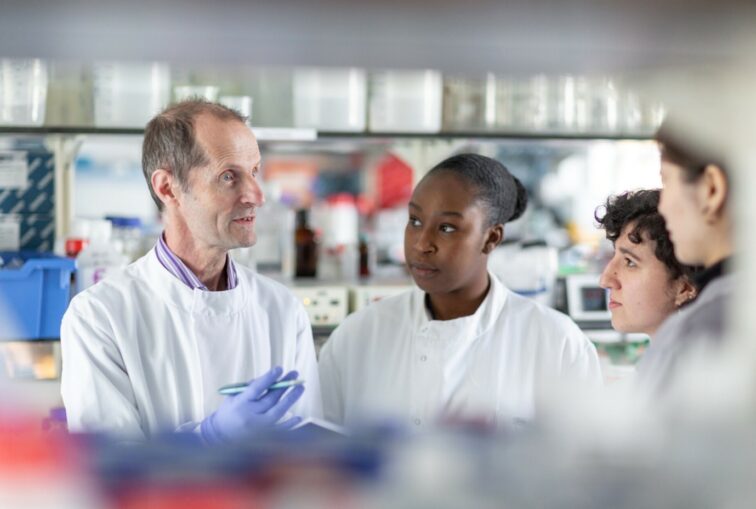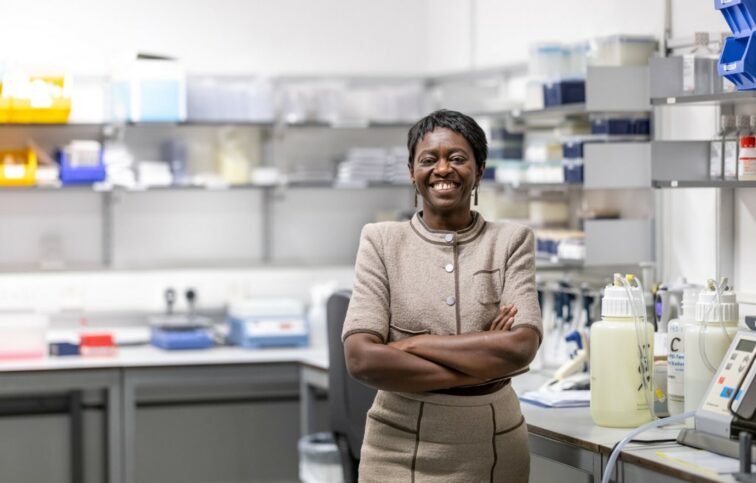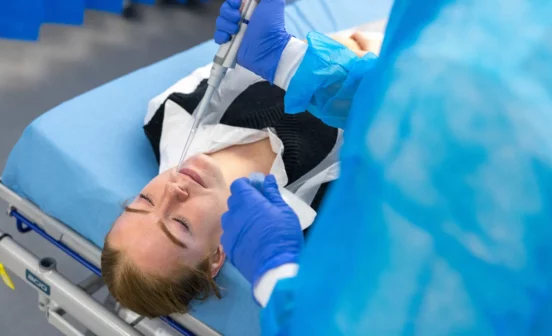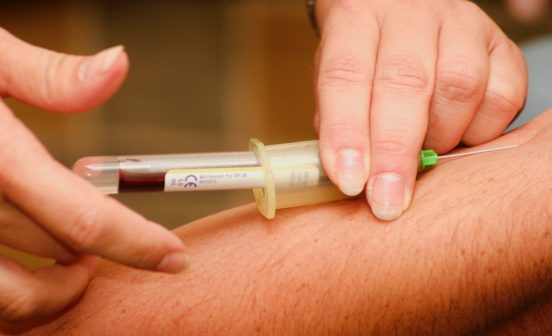AwardPartnership Imperial researchers awarded £17m to lead two hubs to develop globally important vaccines
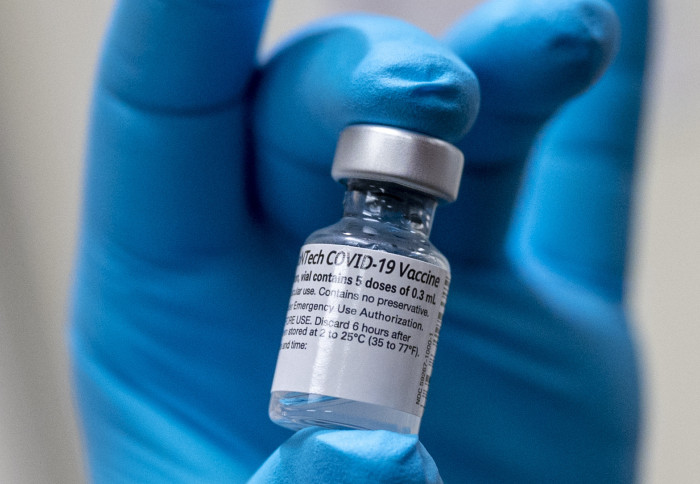
Four vaccine hubs have received a share of £33 million of UK aid funding via the Department of Health and Social Care (DHSC) and a further £1.5 million from the Engineering and Physical Sciences Research Council (EPSRC). The hubs will be part of the UK Vaccine Network (UKVN) Project, which aims to develop vaccines for diseases with epidemic potential in LMICs.
Imperial is leading two of the four hubs and administering a total of £17m. The Hubs, led by Professor Robin Shattock and Professor Faith Osier- NIHR Imperial BRC Infection and AMR Theme members, aim to develop new vaccine technologies that can be easily and cheaply manufactured in low- and middle-income countries (LMICs), including work with partners in Vietnam, Bangladesh, South Africa, Kenya, and Ghana.
Professor Mary Ryan, Vice Provost (Research and Enterprise), said: “Solving the biggest global health challenges requires cooperation of the best talent from around the world. Working with valued international partners from universities and businesses, Imperial’s two vaccine hubs will help more children access life-saving vaccines, create new vaccines against emerging diseases, and enable Africa to make more vaccines of its own. Through these collaborations, we will share our expertise, while learning from our international partners – together we will help the world prepare for future pandemic threats.”
The hubs were announced by Minister for Health and Secondary Care Will Quince. He said: “I’m thrilled that the UK is building on its strong working relationship with global researchers by funding these innovative vaccine hubs, which will support partners across Africa and Southeast Asia to improve vaccine manufacturing capability.
“These innovative partnerships between British universities and vaccine developers will ensure vaccines are accessible to everyone in need and allow us to future-proof health systems both here and abroad by accelerating the availability of new vaccines for future pandemics.”
‘Disruptive technology’ for new vaccines
The Future Vaccine Manufacturing Research Hub, led by Professor Shattock, Chair in Mucosal Infection and Immunity at Imperial, has been awarded £10.5 million for 4.5 years.
Partnering with three other UK universities, two UK institutes and eight companies, the Hub has been established to increase immunisation coverage across the globe and improve the response to viral outbreaks through the rapid and cost-effective manufacturing and deployment of vaccines.
Initial novel manufacturing projects will be carried out in Vietnam, Bangladesh and South Africa, expanding to other countries during the project.
Currently, nearly one in five infants across the world – 19.5 million children – do not have access to basic vaccines, and almost one-third of deaths among children under five could be prevented through the use of vaccines.
The effective distribution of vaccines is hampered in rural areas of low- and middle-income nations by the costs associated with their production and purification and the need for them to be stored at temperatures of between two and eight degrees Celsius.
An additional challenge is the need to respond rapidly to emerging threats such as avian influenza, novel coronaviruses, Ebola and Marburg viruses as well as emerging anti-microbial resistant (AMR) pathogens.
The team plans to innovate and ‘disrupt’ vaccine production by developing reliable technologies that LMICs can adopt to produce vaccines cost-effectively, at scale and in compliance with regulatory requirements. They aim to develop reliable vaccine platforms that can be used to produce tailored vaccines within 100 days of an identified outbreak or threat.
They will create heat-stable vaccine formulations that minimise the need for low-temperature storage, and further develop four existing vaccine platforms, overcoming challenges including scalability, cost and stability. The platforms include RNA, which formed the basis of several important COVID-19 vaccines, and platforms based on viruses, yeast and bacterial membranes.
This work builds on the successes and existing partnerships from the first EPSRC Future Vaccine Manufacturing Research Hub at Imperial, which was funded from 2018-2023.
Professor Shattock said: “Through the establishment of the Future Vaccine Manufacturing Research Hub, we are looking to exploit the next wave of biotechnology innovation to rapidly respond to emerging outbreaks and empower countries most at risk of infections to meet their local vaccine needs.”
The Hub will work in partnership with the Universities of Bristol, Kings College London, and Strathclyde, the CPI, and the Medicines and Healthcare Products Regulatory Agency (MHRA). The partnership will also include GSK Vaccines Institute for Global Health, Cytiva, Centillion Ltd, Sartorius BIA Separations and Fuji Film Diosynth Biotechnologies. Manufacturing research projects will be carried out with the following partners: Incepta, Bangladesh; VABIOTECH, Vietnam; and BioVac, South Africa.
Catalysing the African vaccine manufacturing ecosystem
The Chanjo Hub, led by Professor Osier, Chair in Malaria Immunology & Vaccinology in the Department of Life Sciences, and Co-Director of the Institute of Infection, has been awarded £6.5m.
It is an African-led, academic-industry partnership designed to catalyse the local ‘ecosystem’ necessary for establishing vaccine manufacturing in Kenya and Ghana. It aims to develop local, in-country capacity to produce and deliver vaccines in response to endemic and epidemic diseases of importance to Africa.
Africa has the highest burden of endemic infectious diseases globally, causing ten million deaths and $800 billion of productivity loss annually. During the COVID-19 pandemic, it became clear that African countries could not just rely on the generosity of developed countries for vaccines for current and future disease outbreaks.
The Africa Centres for Disease Control and Prevention and the African Union have called for Africa to manufacture 60 per cent of its vaccine needs by 2040.
Initially, they will focus on an experimental malaria vaccine as a prototype to develop vaccine manufacturing capability in LMICs. They will compare the feasibility, scalability, cost-competitiveness, long-term economic viability and social attitudes across two technology platforms: mRNA and manufacturing in eggs. These platforms are also relevant for seasonal outbreaks and pandemic preparedness in the UK and other high-income countries.
She said: “The need for local capacity to rapidly respond to known and unknown threats and to mitigate impacts to the global community is urgent. We are excited about this African-led programme. It leverages African scientists in the diaspora and on the continent, international collaborators, industry partners, business entrepreneurs, philanthropists, regulators and policymakers.
“Our hub is female-led and gender-balanced. Our transdisciplinary scientific team spans basic science, immunology, vaccinology, social science, public engagement, economics, policy, training, and capacity strengthening, as well as a team dedicated to supporting the vaccine regulatory infrastructure.
“We draw on and enrich the UK’s expertise in vaccine bio-manufacturing, business entrepreneurship and innovation. By bringing together high- and low-income country partners for knowledge exchange and technology transfer, we can accelerate global access to vaccinations and treatments.”

